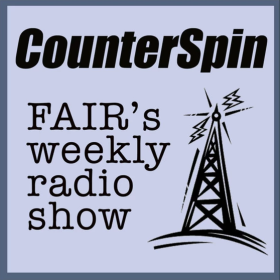This week on CounterSpin: Elite media can give the impression that problems wax and wane along with their attention to them. And, not to put too fine a point on it, they’re done with police brutality.
So if you think news media show you the world, you’ll be surprised to hear that 2023 saw killings by law enforcement up from the previous year, which was up from the year before that. More than 1,200 people were killed, roughly three people every day, including not just those shot dead, but those fatally shocked by a stun gun, beaten or restrained to death. Thirty-six percent of those killed were fleeing, and, yes, they were disproportionately Black.
As far as corporate media are concerned, we’ve tried nothin’, and we’re all out of ideas. Communities, on the other hand, are hard at work reimagining public safety without punitive policing. There’s new work on those possibilities, and we hear about it from Monifa Bandele from the Movement for Black Lives.
Also on the show: There is little research that is more important or less acknowledged than that from Princeton’s (now UCLA’s) Martin Gilens and Northwestern’s Benjamin Page in 2014 on the translation of public opinion into public policy. They looked at more than 1700 policies over 20 years and concluded that where economic elite views diverged from those of the public—as they would—the public had “zero estimated impact upon policy change, while economic elites are still estimated to have a very large, positive, independent impact.”
Awareness of that fundamental disconnect is always relevant—but maybe especially when it comes to election season, where corporate coverage suggests we have an array of choices, we’re able to vote for people to represent our interests and choose our way forward, and let the most popular candidate win! We know it’s not like this, but the reporting that could show us how and why elections don’t work the way we think they do, is just not there, in a vigorous, sustained way. Add that to amped-up efforts to impede voting, even in this imperfect system, and people get discouraged—they don’t vote at all, and problems are compounded. So how do we acknowledge flaws in the system while still encouraging people to participate, and to fight the roadblocks to voting that we’re seeing right now?
We get at that with Svante Myrick, president of People For the American Way, as well as former mayor of Ithaca, New York.



